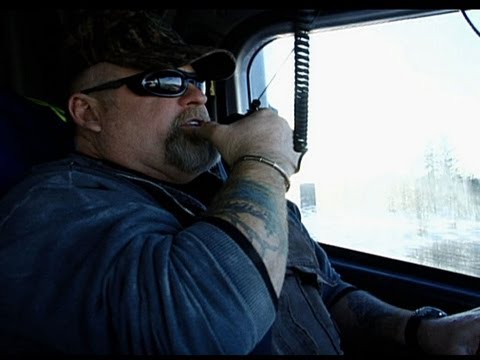On January 29th the new rule prohibiting acts of coercion against truck drivers went into effect giving drivers more rights on the road.
The “prohibiting Coercion of Commercial Motor Vehicle Drivers” rule was published in the Federal Register on November 30, 2015 and finally went into legal effect on January 29, 2016.
What does this mean for you?
Due to major economic pressure in the commercial trucking industry, motor carriers, shippers, and transportation intermediaries often try to coerce their drivers to violate certain provisions of the Federal Motor Carrier Safety Regulations. For years drivers have voiced their concern over transportation companies forcing them to stay on the road after exceeding their maximum hours and haul freight using deficient trucks.

The FMCSA defines coercion as:
“A threat by a motor carrier, shipper, receiver, or transportation intermediary, or their respective agents, officers or representatives, to withhold business, employment or work opportunities from, or to take or permit any adverse employment action against, a driver in order to induce the driver to operate a commercial motor vehicle under conditions which the driver stated would require him or her to violate one or more of [federal safety] regulations…or the actual withholding of business, employment, or work opportunities or the actual taking or permitting of any adverse employment action to punish a driver for having refused to engage in such operation of a commercial motor vehicle.”
The final rule addresses three main areas:
- Procedures for commercial truck and bus drivers to report incidents of coercion to the FMCSA
- Steps the FMCSA can take when responding to allegations
- Potential penalties that could be imposed on entities found to have coerced drivers
As drivers it is important that you understand the basics of this new rule as it could affect you on the road.
Also Read: Make the New HOS Rules Work for You
Procedures to Report Incidents of Coercion
If you feel that your employer or another entity is coercing you then it is important to communicate that to your employer. Your safety should come first.
If you feel are still being coerced then you should report it to the FMCSA. Coercion complaints must be filed within 90 days of the alleged coercion act.
Your complaint to the FMCSA must include the following:
- Your names, address and telephone number
- Name and address of the person or entity who allegedly committed the act of coercion
- The regulations you were allegedly coerced to violate
- A brief and complete statement of facts of each alleged act of coercion and date of each violation
- The compliant must be signed
When you file your complaint make sure you include as much supporting information as possible. Supporting information can include things like text message or emails exchanged between you and the entity or names of any witnesses.
To file an official complaint with the FMCSA, you should contact the Division Office located in the state where you are employed.
Steps the FMCSA Takes to Investigate
Once a driver reports a complaint to the FMCSA. A Division Administrator will investigate and determine if the complaint is frivolous or meets the definition of coercion. All non-frivolous complaints will be investigated and the findings reported back to the driver.
Possible Penalties
If an entity is found to have coerced a driver, they may face fines up to $16,000 for each offense. Or, in extreme cases, the entity could lose their operating authority.
The new rule is a step in the right direction for many drivers. Congress mandated the rule back in 2014 as a response from long-standing driver concerns that carriers and other entities often pushed drivers to break the federal safety rules. Finally, the new rule went into effect on January 29, 2016. Your rights as a driver are now protected.